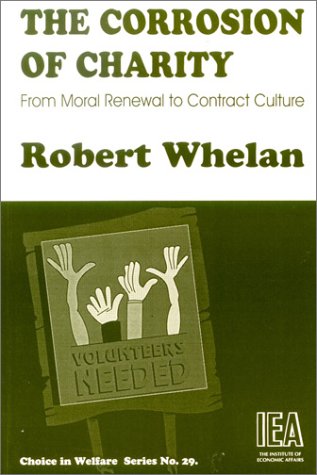For centuries the provision of welfare services to the needy was primarily the responsibility of private citizens and voluntary agencies, with the state acting as the provider of last resort, through the poor laws. The emergence in the twentieth century of a rights-based, universal welfare state has created a dilemma for the voluntary sector. Unable to compete with the state in terms of resources or coverage, many charities have become little more than government sub-contractors, charging fees to provide services. As a result, charities have lost some of their independence, their capacity to be innovative, and their special significance as primary institutions of civil society, providing training grounds for good citizenship. As the dividing line between civil and political society has become increasingly blurred, many voluntary organisations have been transformed from pioneering bodies into pressure groups for ever-greater state provision. Very few charities now offer any real alternative to the statutory approach or seek to base programmes on a more positive view of human nature. "Robert Whelan ...offers an unashamed free marketeer's critique." Community Care "A ...pamphlet by Robert Whelan intimates that the 'contract culture', the mechanism whereby charities receive money from government in return for undertaking set tasks, is contrary to the moral purpose of their Victorian founders.
" Financial Times.
- ISBN10 0255363672
- ISBN13 9780255363679
- Publish Date July 1996
- Publish Status Out of Print
- Out of Print 17 June 2002
- Publish Country GB
- Imprint Civitas:Institute for the Study of Civil Society
- Format Paperback
- Pages 124
- Language English
